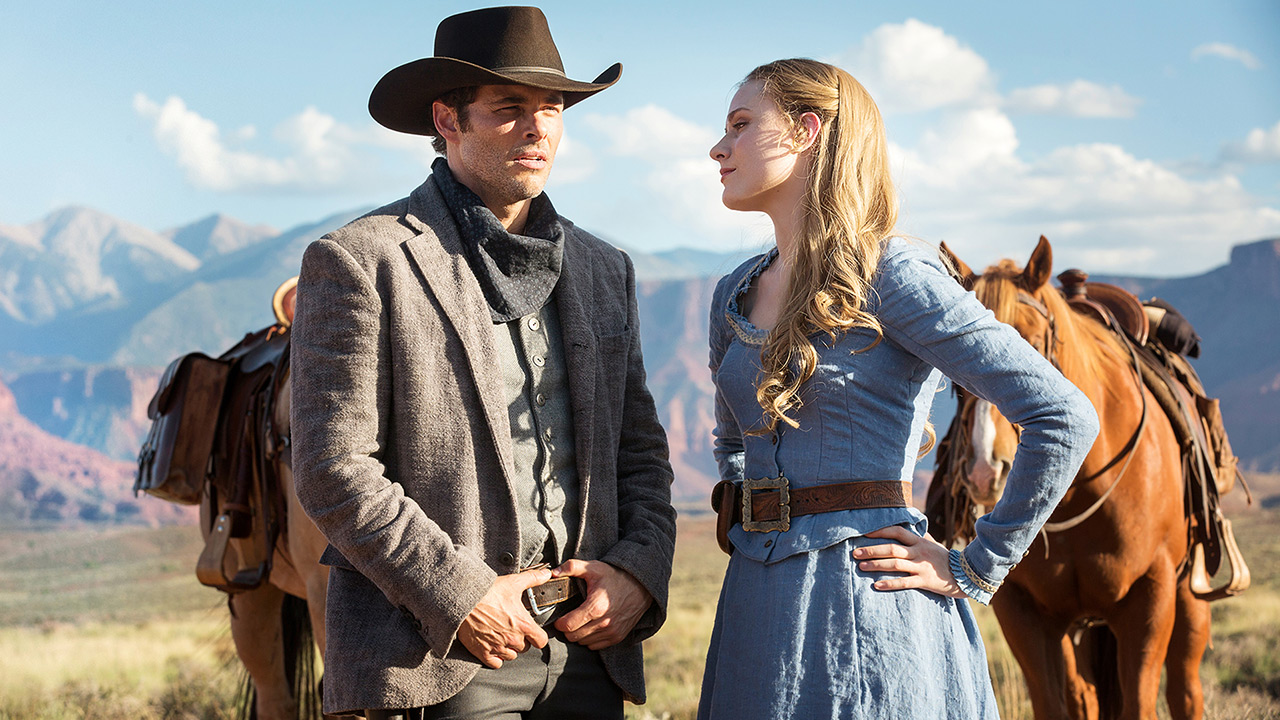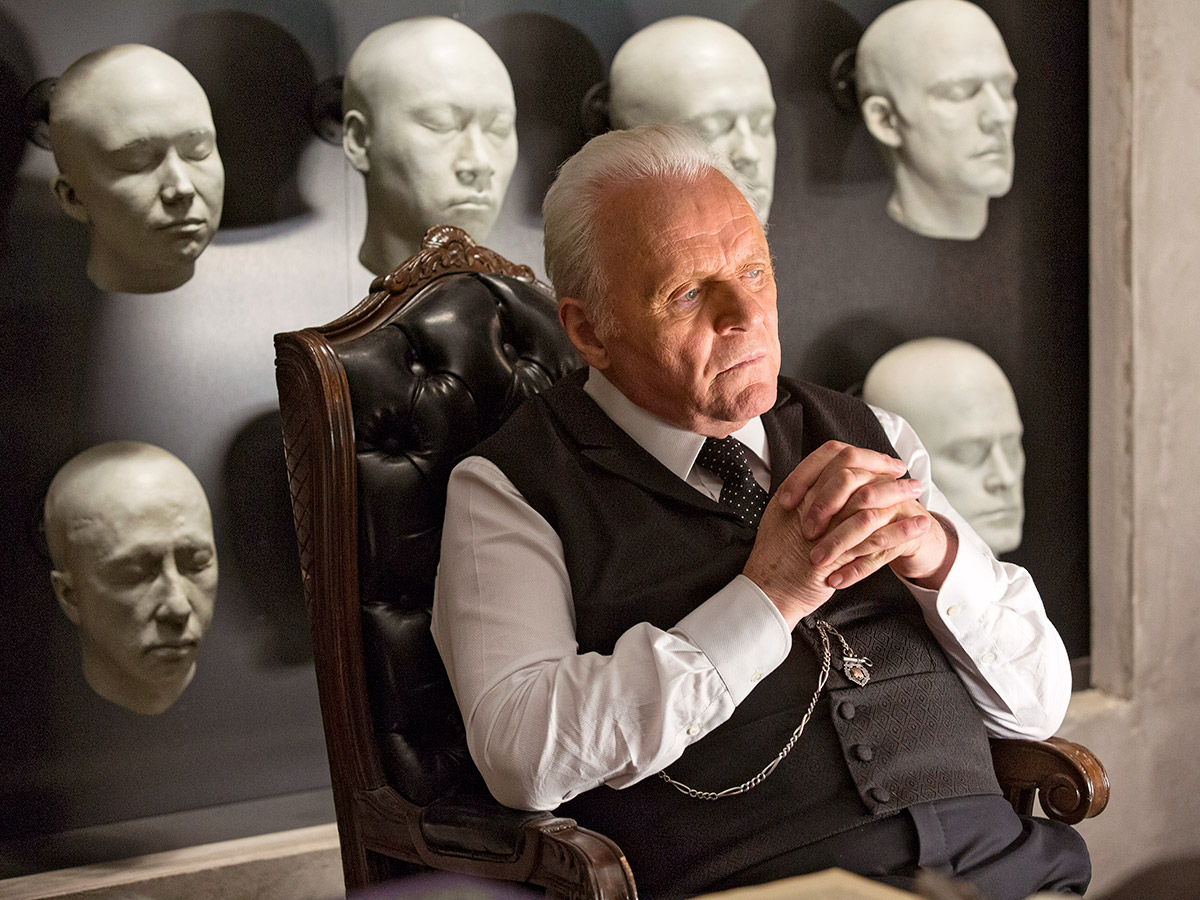Revisiting 'Westworld': Did season 1 predict our AI-driven future?
You can’t play god without being acquainted with the devil ...

Here at Tom’s Guide our expert editors are committed to bringing you the best news, reviews and guides to help you stay informed and ahead of the curve!
You are now subscribed
Your newsletter sign-up was successful
Want to add more newsletters?

Daily (Mon-Sun)
Tom's Guide Daily
Sign up to get the latest updates on all of your favorite content! From cutting-edge tech news and the hottest streaming buzz to unbeatable deals on the best products and in-depth reviews, we’ve got you covered.

Weekly on Thursday
Tom's AI Guide
Be AI savvy with your weekly newsletter summing up all the biggest AI news you need to know. Plus, analysis from our AI editor and tips on how to use the latest AI tools!

Weekly on Friday
Tom's iGuide
Unlock the vast world of Apple news straight to your inbox. With coverage on everything from exciting product launches to essential software updates, this is your go-to source for the latest updates on all the best Apple content.

Weekly on Monday
Tom's Streaming Guide
Our weekly newsletter is expertly crafted to immerse you in the world of streaming. Stay updated on the latest releases and our top recommendations across your favorite streaming platforms.
Join the club
Get full access to premium articles, exclusive features and a growing list of member rewards.
When HBO’s "Westworld" hit our screens in 2016, it was a rollercoaster of plot twists, complex characters, and a richly constructed world where artificial intelligence blurred the lines between human and machine. Fast forward to today, and rewatching the first season feels less like sci-fi and more like a prophecy.
Today’s AI landscape, with advancements from OpenAI’s ChatGPT to Google Gemini, mirrors "Westworld's" foresight. Pushing the boundaries of natural language processing and machine learning, these systems have sparked controversies over ethical use and data privacy. Just like in the show, the rapid progression of AI technology brings both incredible potential and significant ethical dilemmas.
Sentience, free will, and ethical predicaments are now front and center in real-world AI discussions. From breakthroughs in machine learning to intense debates over AI rights, "Westworld" season 1 is a sneak peek into a future that feels closer to the present than ever.
The awakening of sentience
"Westworld’s" first season invites viewers into a dystopian theme park where AI hosts cater to human guests' wildest fantasies. Remember Dolores, the sweet rancher’s daughter, and Maeve, the savvy brothel madam? Their journey to self-awareness is more than a gripping narrative, it's a blueprint for our current AI evolution.
Dolores’ awakening, triggered by memories of past loops, parallels today's AI advancements in machine learning and neural networks. One of the pivotal moments early on in the series is when Dolores begins to recall her past, hinting at the deeper consciousness developing within her. This mirrors machine learning, where AI systems learn from vast datasets to improve their performance.
Maeve's journey is another compelling storyline that echoes real-world AI developments. The madam manages to manipulate her code, increasing her intelligence and self-awareness. This self-modification draws parallels to Google's DeepMind, an AI that can improve learning algorithms without human intervention, much like Maeve's self-enhancements.

Ethical dilemmas
The hosts in Westworld are exploited for entertainment, raising big questions about consent and rights. The show's portrayal of violence against hosts by the guests highlights ethical issues of creating human-like beings for exploitation. Throughout the season we see hosts subjected to brutal treatment without the ability to consent, reduced to objects.
Get instant access to breaking news, the hottest reviews, great deals and helpful tips.
This lack of care is vividly illustrated when guests indulge in morally reprehensible behavior without any consequences, emphasizing the predicament of creating human-like entities capable of suffering. This is not far removed from current debates about the moral status of advanced AI, and whether they should have rights if they achieve a certain level of autonomy.
The parallels between "Westworld" and real-world AI developments serve as a stark reminder of the responsibilities we have as creators of advanced technologies.
Delos Corporation's shady practices
Remember the Delos Corporation's shady data practices? Collecting and using the guest's data for nefarious purposes sounds all too familiar, doesn't it? Data privacy issues are at the heart of many discussions about AI and technology, and "Westworld" masterfully explores these concerns through the actions of Delos.
It's revealed Delos has been recording guest activity and conversations without their knowledge or consent. This invasive data collection serves as a critical plot point, underscoring the dark possibilities of technology misuse. This theme is strikingly relevant today, where data privacy has become a significant concern.
In the "Westworld" universe, the unethical use of data-storing extends beyond surveillance. Delos uses the data to refine and manipulate the host's behavior, making the park more appealing and profitable at the expense of host autonomy and guest privacy. This reflects the implications of data misuse in the real world, where collected data can be used to influence behavior, preferences and even decision-making.

A visionary look at the future
As AI continues to evolve, "Westworld" remains a relevant, thought-provoking lens, and a visionary look at a future we're inching towards. The sci-fi powerhouse was truly groundbreaking and is a fascinating reflection on the issues we're facing in the age of AI.
You can stream all four seasons of "Westworld" with rental or purchase on Amazon or Apple.
More from Tom's Guide
- 'Fallout’s' success makes me crave a final send-off to this canceled sci-fi series
- HBO shockingly cancels Westworld, giving little chance for a conclusion
- Roku just added 3 free TV channels — including one with Westworld and HBO shows

Kaycee is Tom's Guide's How-To Editor, known for tutorials that get straight to what works. She writes across phones, homes, TVs and everything in between — because life doesn't stick to categories and neither should good advice. She's spent years in content creation doing one thing really well: making complicated things click. Kaycee is also an award-winning poet and co-editor at Fox and Star Books.
 Club Benefits
Club Benefits










